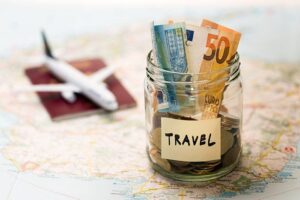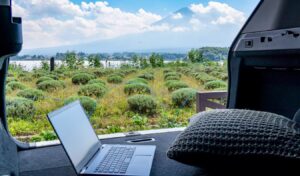Backpacking for the first time can be both exciting and overwhelming. This unique way of traveling promotes exploration, flexibility, and cultural experiences at an affordable price. First-time backpackers should understand the basics of budget backpacking. Traveling cheaper, smarter, easier, and more efficiently is the goal. Being mentally and physically prepared can make your travel experience more enjoyable and less stressful. With the right mindset and knowledge, your trip can be both budget-friendly and unforgettable.
Budget Vacation Destinations
Planning a budget backpacking trip starts with choosing a destination that fits your budget. Countries in Southeast Asia, Central America, and Eastern Europe are cheaper to travel to. These budget-friendly destinations offer rich culture, beautiful scenery, and friendly locals. You can prioritize your budget by researching your daily expenses, such as accommodation, food, and transportation, in different countries. Choosing the right destination can save your travel budget while giving you an unforgettable experience.
Travel Light, Pack Smart
Efficient packing is essential for backpackers. A heavy backpack can become a burden if you travel frequently. Choose a lightweight and durable backpack and stick to the basics. Travel gear, versatile clothing, and compact toiletries. Roll your clothes, use storage bags, and minimize your electronics. The key is to pack multi-purpose items and avoid bringing extras. Traveling light is easier and less stressful during your trip.
Find Affordable Accommodation
Accommodation is one of the biggest expenses when traveling, but it doesn’t always have to be. Beginner backpackers can consider hostels, budget guesthouses, or even homestays, as these accommodation options are affordable. Websites and apps like Hostelworld or Booking.com offer reviews and price comparisons to help you find a deal. Many hostels offer dormitory rooms, which allow you to meet other travelers and save money. Couchsurfing and house-sitting platforms are also popular among budget travelers. Choosing accommodation with a shared kitchen allows you to cook your own meals instead of eating out every meal, saving even more money.
Eat Healthy and Don’t Spend too Much
Food is another area where you can spend or save a lot of money, depending on how you approach it. Street food and local markets offer a wealth of delicious and affordable food. Instead of always eating at touristy restaurants, eat at places where the locals frequent. This will not only save you money but will also give you a more authentic experience of the local culture. Buying groceries at the supermarket or cooking your own food is also a great way to save on food costs. With a little creativity, you can enjoy delicious meals without sacrificing your travel budget.
Use Public Transport Wisely
Transport costs can quickly add up, especially if you’re not careful. Beginner backpackers will need to get used to using local public transport. Buses, trains, and carpooling are often much cheaper than taxis or rental cars. In many cities, you can buy a day pass or travel pass that allows you unlimited travel for a fixed price. Walking and cycling are not only affordable but also a great way to explore new destinations at your own pace. Avoiding last-minute bookings and planning your itinerary in advance can also help you get better prices and reduce the stress of transportation.
Stay Safe and Healthy on a Budget
Even if you’re on a budget, you should never neglect safety and health while traveling. Make sure your vaccinations are up to date and have all necessary medications before you leave. Travel insurance may seem like an extra expense, but it can save you a lot of money in the event of an emergency. First-time travelers should also be aware of common scams in their destination and take basic precautions, such as keeping valuables safe. Living in safe neighborhoods, drinking bottled water when necessary, and practicing good hygiene are essential for a worry-free trip.
Making the Most of Free Activities
Enjoy your destination without spending a fortune. These cities offer free or donated walking tours, museums with free admission, and parks where you can picnic and relax. Enjoy nature by hiking, swimming, or exploring local landmarks. Public cultural events and festivals give you the chance to experience local life from a unique perspective. With a little knowledge and curiosity, some of the most enriching travel experiences are free.
Meet Other Travelers and Expand Your Network
Meeting people from all over the world is an important part of backpacking. Hostels, group tours, and traveler meetups are great places to meet new people. Connections can lead to shared meals, travel tips, or affordable group tours. Other travelers can give you advice on where to go, what to avoid, and how to save money. Sharing your adventures with other travelers can make your trip even more exciting.
Be Flexible, not Perfect
Backpacking teaches you to accept the unexpected, but beginners often want everything to be perfect. Plans can change, buses can be delayed, and sometimes the unexpected happens. Being flexible will help you enjoy activities without worry. The best moments often come from the bad times. Stay positive, learn from every experience, and remember that travel is not just about the destination; it’s also about the journey.
Travel Budget & Money Management
Keeping track of your expenses can help you stay within your budget. Use a travel budget tool or a notepad to keep track of your spending. Taking out large amounts of money can help you avoid ATM fees, but don’t carry too much cash. Have a backup payment method and use a credit card that doesn’t allow foreign transactions. Your entire budget and the prices at your destination should also guide your daily spending limit. Being financially responsible can help you travel longer and avoid financial worries.
Local Language and Customs for Beginners
In countries where English is not spoken, learning a few local expressions can make a big difference. Simple greetings, thank yous, and numbers can make conversations more relaxed and fun. Knowing local cultural norms and etiquette can help prevent misunderstandings and respect local culture. Locals will appreciate your efforts, and it can lead to a more authentic experience or lower prices in markets and shops. Respecting local culture can enhance your travel experience and improve interactions.
Conclusion
First-time backpackers find budget travel both rewarding and liberating. With careful planning, smart choices, and the ability to be flexible, you have the opportunity to experience different cultures, meet interesting people, and create unforgettable memories without spending too much money. Be prepared, stay flexible, and embrace adventure. Budget travel means enjoying doing more with less and immersing yourself in adventure.
FAQs
1. Budget hiking for solo travelers—is it safe?
Solo budget hiking can be safe and rewarding if you choose safe accommodations, take good care of your belongings, and learn local safety tips.
2. How much should I budget per day?
Many budget travelers can expect to spend $20 to $50 per day on food, lodging, hotels, and activities, depending on their destination. Do your research beforehand so you can set a reasonable budget.
3. What size backpack is best for traveling?
Most short trips are best done with a 40- to 60-liter backpack, which will provide enough space for essentials without taking up too much room.
4. How to find cheap backpacking flights?
Check out travel comparison sites, set price alerts, be flexible with your dates, and search for budget airlines or nearby airports for the best deals.
5. Should backpackers get travel insurance?
Yes, it is advisable to get travel insurance. This will protect you from medical emergencies, trip cancellations, and theft during your trip.




